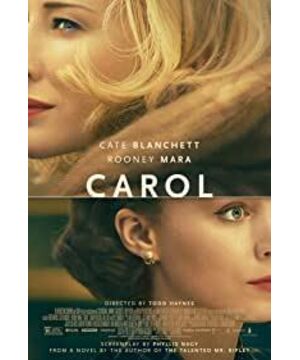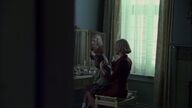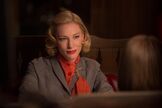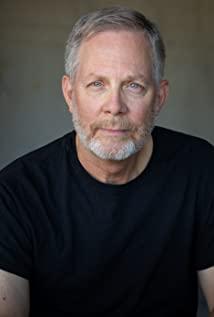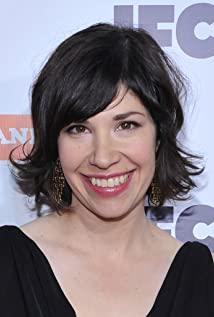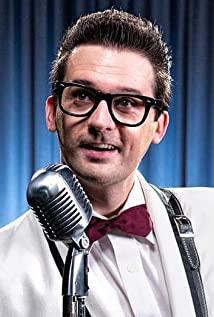) As an audience, in addition to an unforgettable love, what we saw in two hours was the process of a beautiful girl going from innocence to maturity. The two heroines Carol and Therese are very different in appearance, dress, age and class. One is a noble and elegant middle-aged woman, while the other is an ordinary sales girl. Carol has experienced the beauty and betrayal in marriage, and is worrying about divorce and fighting for child custody. And Therese's life has just begun, she's exploring her interests and experiencing what it's like to be in love. Therese at the beginning of the film is a little ignorant and doesn't know how to reject others. She didn't know what she wanted or what the goddess Carol was thinking. All she knew was that she would do what Carol wanted her to do. However, after being tormented by love, Therese transformed into an independent woman. She got a job at The New York Times for her photos and the respect of her friends. She does what she wants to do, lives the life she likes, is young and talented. When a woman is just beginning to exude maturity, her beauty is irresistible. Carol's eyes were always inseparable from Therese's face, and her love for this girl from the beginning gradually turned into admiration. Looking at Therese dressed demurely, Carol was relieved, "You have grown up, like a blooming flower." If such a compliment was placed before, I am afraid that Therese will faint with joy, and at this time we are from her face. Didn't see too many expressions. "I think you'll move in with me, but I don't think you'll agree." The question and answer showed Carol's guilty conscience. At this time, she was no longer the radiant goddess in front of Therese, she even would Say something childish: "Do you hate me?" "Did you get better because you left me?" Carol knew that this time he was gambling. She had previously given up child custody for Therese. But she felt that only by doing so would she have the courage to sit across from her beloved. Carol wasn't sure about Therese's decision. At this point in the relationship between the two, Carol became the weaker party, and the initiative fell to Therese. "No, I don't want to do that." It wasn't that Therese didn't have a desire for Carol, she just learned to protect herself, to say "no" to the people she loved the most. Carol had no choice but to accept this decision. She put down her body and looked into Therese's eyes. After a long pause, she finally said the words hidden in her heart - "I love you." The screenwriter's grasp of the structure of the story. Director Todd Haynes mentioned several times in the interview that he worked with screenwriter Phyllis Nagy to revise the script. As a thoughtful director, Haynes also likes the original "The Price of Salt" very much. In the early stages, he and Nagy often sat together to talk about the details of the novel. When they were rising, the two often slapped their thighs and had a flash of inspiration. Nagy was a friend of the original author, Patricia Highsmith, but the adaptation took place after the author's death. Through the constant communication between Nagy and Haynes, the story finally presented on the big screen seems to have more descriptions of the complex and sensitive inner world of women than the original. For example, there is a scene in the movie where Carol sees a picture of her as a child on the wall of Therese's apartment, which reminds Carol of her own daughter, and turns her back and weeps. In the original book, there is hardly any description of Carol missing her daughter, but Haynes, as a man, can capture the thought of being a mother, which is really amazing. The end of the story echoes the beginning, and the last scene is almost the same as the scene where the two first met. The difference was that this time Therese didn't have the cautious, bewildered look on Therese's face. Her smile was filled with happiness and confidence, and she stood in the middle of the room, patiently waiting for the moment when Carol's eyes met her. "Cairore" is about a love affair between two women, but I don't think it's a niche gay movie. It's as heartwarming as any good love story, just with a little more sadness and grace. As the director himself said: "I feel very lucky to be able to work with such a group of people who are full of love for movies." I believe that this love also infects every movie-loving audience through the lens and music. Haynes mentioned several times in the interview that he worked with screenwriter Phyllis Nagy to revise the script. As a thoughtful director, Haynes also likes the original "The Price of Salt" very much. In the early stages, he and Nagy often sat together to talk about the details of the novel. When they were rising, the two often slapped their thighs and had a flash of inspiration. Nagy was a friend of the original author, Patricia Highsmith, but the adaptation took place after the author's death. Through the constant communication between Nagy and Haynes, the story finally presented on the big screen seems to have more descriptions of the complex and sensitive inner world of women than the original. For example, there is a scene in the movie where Carol sees a picture of her as a child on the wall of Therese's apartment, which reminds Carol of her own daughter, and turns her back and weeps. In the original book, there is hardly any description of Carol missing her daughter, but Haynes, as a man, can capture the thought of being a mother, which is really amazing. The end of the story echoes the beginning, and the last scene is almost the same as the scene where the two first met. The difference was that this time Therese didn't have the cautious, bewildered look on Therese's face. Her smile was filled with happiness and confidence, and she stood in the middle of the room, patiently waiting for the moment when Carol's eyes met her. "Cairore" is about a love affair between two women, but I don't think it's a niche gay movie. It's as heartwarming as any good love story, just with a little more sadness and grace. As the director himself said: "I feel very lucky to be able to work with such a group of people who are full of love for movies." I believe that this love also infects every movie-loving audience through the lens and music. Haynes mentioned several times in the interview that he worked with screenwriter Phyllis Nagy to revise the script. As a thoughtful director, Haynes also likes the original "The Price of Salt" very much. In the early stages, he and Nagy often sat together to talk about the details of the novel. When they were rising, the two often slapped their thighs and had a flash of inspiration. Nagy was a friend of the original author, Patricia Highsmith, but the adaptation took place after the author's death. Through the constant communication between Nagy and Haynes, the story finally presented on the big screen seems to have more descriptions of the complex and sensitive inner world of women than the original. For example, there is a scene in the movie where Carol sees a picture of her as a child on the wall of Therese's apartment, which reminds Carol of her own daughter, and turns her back and weeps. In the original book, there is hardly any description of Carol missing her daughter, but Haynes, as a man, can capture the thought of being a mother, which is really amazing. The end of the story echoes the beginning, and the last scene is almost the same as the scene where the two first met. The difference was that this time Therese didn't have the cautious, bewildered look on Therese's face. Her smile was filled with happiness and confidence, and she stood in the middle of the room, patiently waiting for the moment when Carol's eyes met her. "Cairore" is about a love affair between two women, but I don't think it's a niche gay movie. It's as heartwarming as any good love story, just with a little more sadness and grace. As the director himself said: "I feel very lucky to be able to work with such a group of people who are full of love for movies." I believe that this love also infects every movie-loving audience through the lens and music. A friend of Highsmith, however the adaptation took place after the author's death. Through the constant communication between Nagy and Haynes, the story finally presented on the big screen seems to have more descriptions of the complex and sensitive inner world of women than the original. For example, there is a scene in the movie where Carol sees a picture of her as a child on the wall of Therese's apartment, which reminds Carol of her own daughter, and turns her back and weeps. In the original book, there is hardly any description of Carol missing her daughter, but Haynes, as a man, can capture the thought of being a mother, which is really amazing. The end of the story echoes the beginning, and the last scene is almost the same as the scene where the two first met. The difference was that this time Therese didn't have the cautious, bewildered look on Therese's face. Her smile was filled with happiness and confidence, and she stood in the middle of the room, patiently waiting for the moment when Carol's eyes met her. "Cairore" is about a love affair between two women, but I don't think it's a niche gay movie. It's as heartwarming as any good love story, just with a little more sadness and grace. As the director himself said: "I feel very lucky to be able to work with such a group of people who are full of love for movies." I believe that this love also infects every movie-loving audience through the lens and music. A friend of Highsmith, however the adaptation took place after the author's death. Through the constant communication between Nagy and Haynes, the story finally presented on the big screen seems to have more descriptions of the complex and sensitive inner world of women than the original. For example, there is a scene in the movie where Carol sees a picture of her as a child on the wall of Therese's apartment, which reminds Carol of her own daughter, and turns her back and weeps. In the original book, there is hardly any description of Carol missing her daughter, but Haynes, as a man, can capture the thought of being a mother, which is really amazing. The end of the story echoes the beginning, and the last scene is almost the same as the scene where the two first met. The difference was that this time Therese didn't have the cautious, bewildered look on Therese's face. Her smile was filled with happiness and confidence, and she stood in the middle of the room, patiently waiting for the moment when Carol's eyes met her. "Cairore" is about a love affair between two women, but I don't think it's a niche gay movie. It's as heartwarming as any good love story, just with a little more sadness and grace. As the director himself said: "I feel very lucky to be able to work with such a group of people who are full of love for movies." I believe that this love also infects every movie-loving audience through the lens and music.
View more about Carol reviews


